After a rich foreshadowing, large-scale chain games have started internal testing.
first level title
Bigtime
Bigtime is a triple-A game that combines action fighting, NFT collection, and multiplayer cooperative RPG adventures across history. It was formed by Decentraland co-founder Ari, and the development team came from game teams such as Call of Duty, League of Legends, and Fortnite. On May 12, 2021, Big Time Studios announced the completion of a $21 million financing led by FBG Capital. The team also developed Openloot, a Web3 game asset trading platform.
Big Time Studio will hold two public sales of the in-game asset Space NFT at the end of 2021 and March 2022. Space NFT has similar functions to LAND in Decentraland and Sandbox, and its price ranges from 299-3299 US dollars according to the size level . A total of 60,000 Space NFTs were sold in the two public sales, accounting for 10% of the total. The remaining SPACE NFTs will drop as loot, and the drop cycle will last for several years. The official received a total of 70 million US dollars through the sale of 60,000 Space NFTs.
secondary title
Closed beta gameplay
Bigtime will start closed beta on April 19, 2022, and the game will be launched on the PC side. Holding a VIP pass can participate in the internal test, and there is a chance that rare NFTs will be released during the internal test. Players can trade in the Openloot market after obtaining such NFTs. According to community feedback, European Emperor players can get their money back on the spot after the super rare NFT is revealed during the game.
According to official information, VIP passes are divided into four levels: Gold (1,000 in total), Silver (3,000 in total), Emerald (8,000 in total), and Ruby (16,000 in total). Among them, the first three are sold through the secondary market, and the ruby pass is only open to creators, artists and core contributors to the community for free.
The mode of entering the internal test of the game is to enter in batches. Players with a gold pass will enter the closed beta first, silver pass players will enter after five weeks, emerald pass players will enter after eight weeks, and ruby pass players will enter on July 14, 2022. The earlier the player enters the closed beta, the higher the burst rate of rare NFTs will be obtained during the game, and some Space NFTs will be dropped in the game.
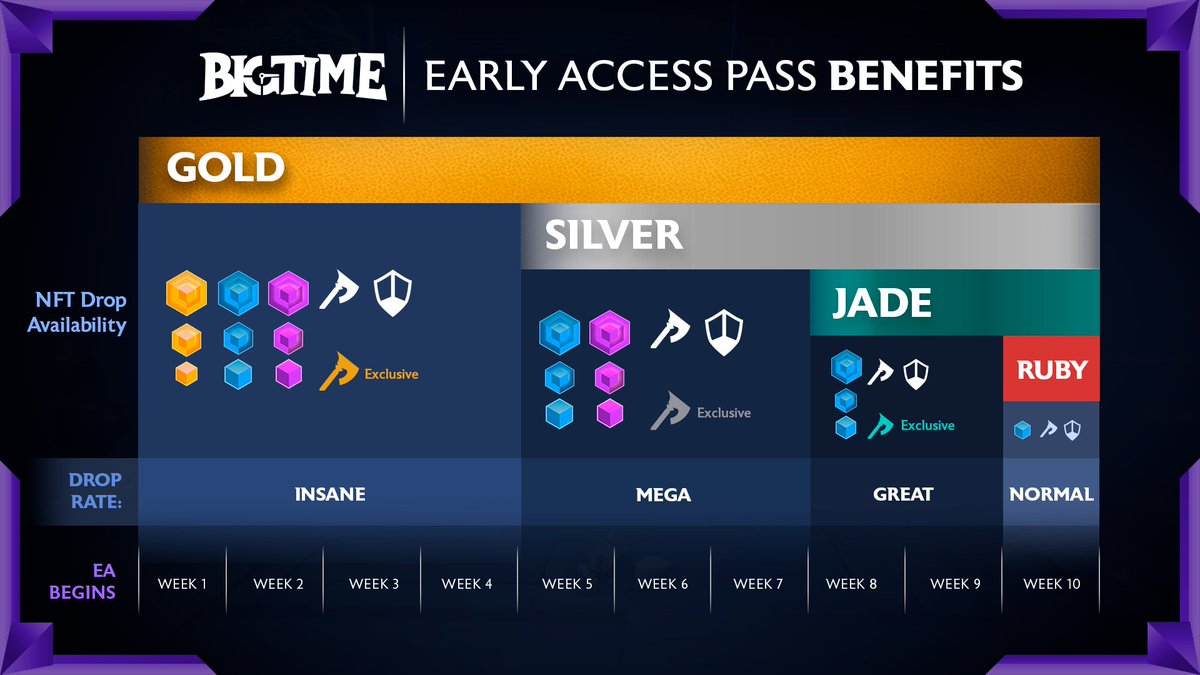
In addition to a variety of decorations and utility NFTs in the game ecosystem, the in-game token TIME will also be launched at the end of the early access phase. This token is only available in the game, and can only be produced through game battles, missions and dungeons. No investors or employees will be able to receive grants or purchase TIME tokens, nor will there be private placements, reservations, etc. Its uses are the main in-game value transfer medium, including purchasing rare or exclusive NFT charms, speeding up the production time of equipment, and repairing broken and consumed items.
The token output is specifically that players need to hold three NFTs: Space (Space NFT), Time Wardens (Time Wardens), and Time Hourglass (Hourglass). Yes, tokens will drop during the game. The sand in the hourglass will be consumed gradually, and players need to recharge it with time guardians and game tokens to continue using it. The more time hourglasses operate at the same time, the more game tokens will be dropped.
Bigtime will start the airdrop event in February 2023, airdropping gift blind boxes to eligible accounts every month, with a total of 153,000 utility NFTs, including armory, furnace, and time guard. The airdrop rules are based on the point system, which is divided into 5 levels. Players of the same level 1 get the same airdrop content. Points consist of asset points and game points. The more Bigtime NFT assets held in the user account, the rarer, and the higher the value, the higher the asset points obtained. Users can earn game credits by completing copies of the game. When the points meet the requirements, you can get the airdrop. Now players can sign up to participate in the internal test, so as to obtain game points and win airdrops.
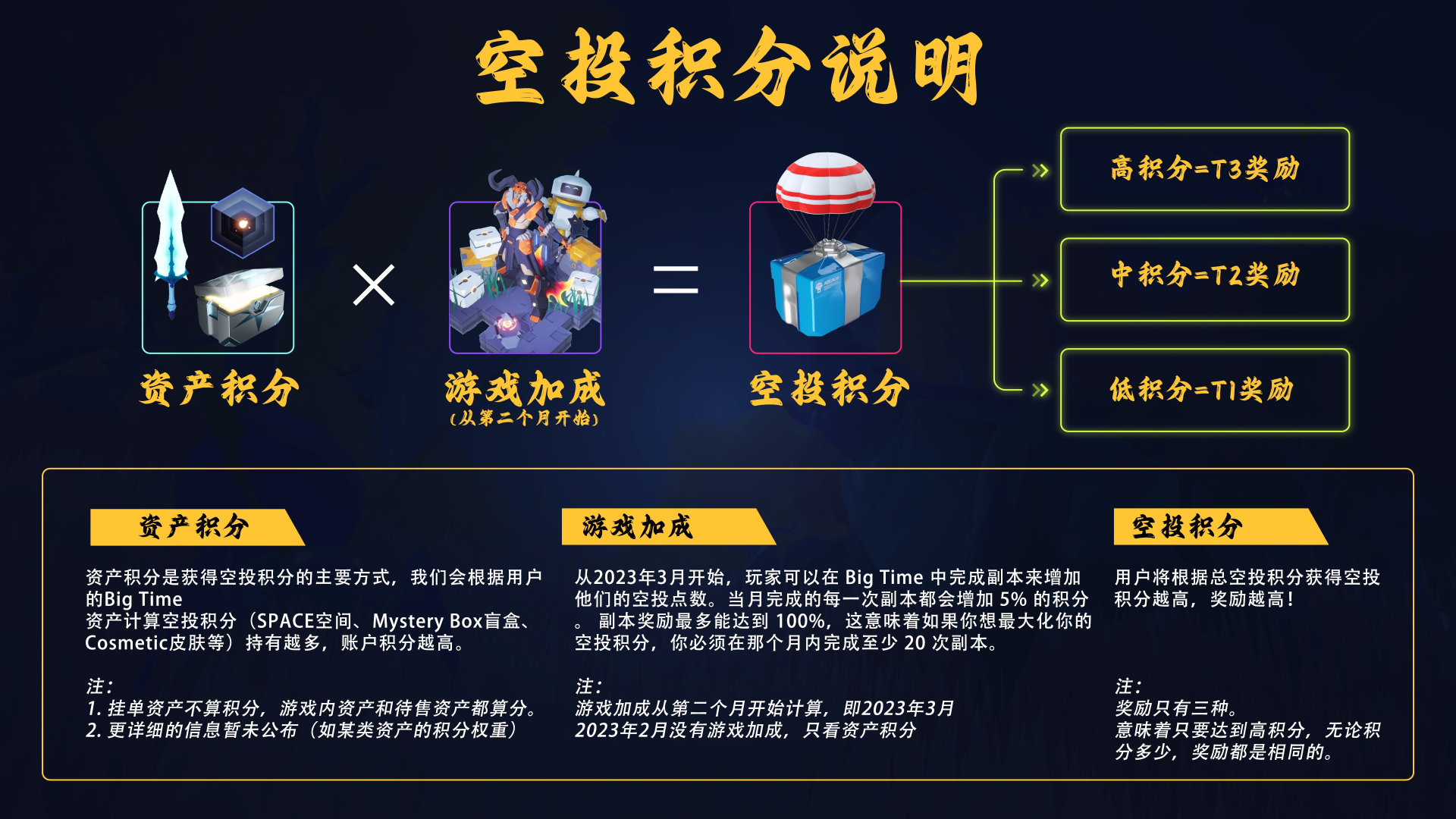
asset market value
Bigtime tokens have not yet been launched on the secondary market, and NFT assets are diverse. There are armors, weapons, decorations, mystery boxes and more. Here, the main NFT asset Space NFT is used for calculation.
Space NFT rare small, medium, and large space floor prices are $60, $90, and $348 respectively, and the maximum total supply is 168,000, 68,000, and 7,200 respectively. The epic small, medium and large spaces are valued at $73, $117, and $398 respectively, and the total supply is 108,000, 63,000, and 9,000, respectively. The value of the small, medium and large spaces of the legendary class is 98 US dollars, 165 US dollars, and 500 US dollars respectively, and the total supply is 72,000, 36,000, and 12,000 respectively. The mythical small, medium, and large spaces are valued at $185, $315, and $1,189 respectively, and the total supply is 26,400, 16,800, and 4,800 respectively. The sublime small, medium, and large space values are $719, $1,280, and $2,799 respectively, and the total supply is 6,000, 3,600, and 2,400. Its market cap is $88.06 million.
Plus, Openloot accepts debit and credit cards, wire transfers, Ethereum, Bitcoin, and USDC. That is to say, users do not need to install a wallet to purchase NFT assets, and they can also use traditional methods of purchasing goods. This facilitates users who are new to crypto assets and tools.
Beta users
Users currently participating in the test include early testers, VIP pass holders, and more than 20 guilds. These include YGG, Merit Circle, Avocado Guild, Loudgg and Neo Tokyo, among others. According to data from similarweb, a third-party website query tool, the number of visits to Bigtime’s official website has increased month by month. In January, the number of visits was 152,000, and the visit time was about 2 minutes. The visits were mainly from the United States and the Philippines.
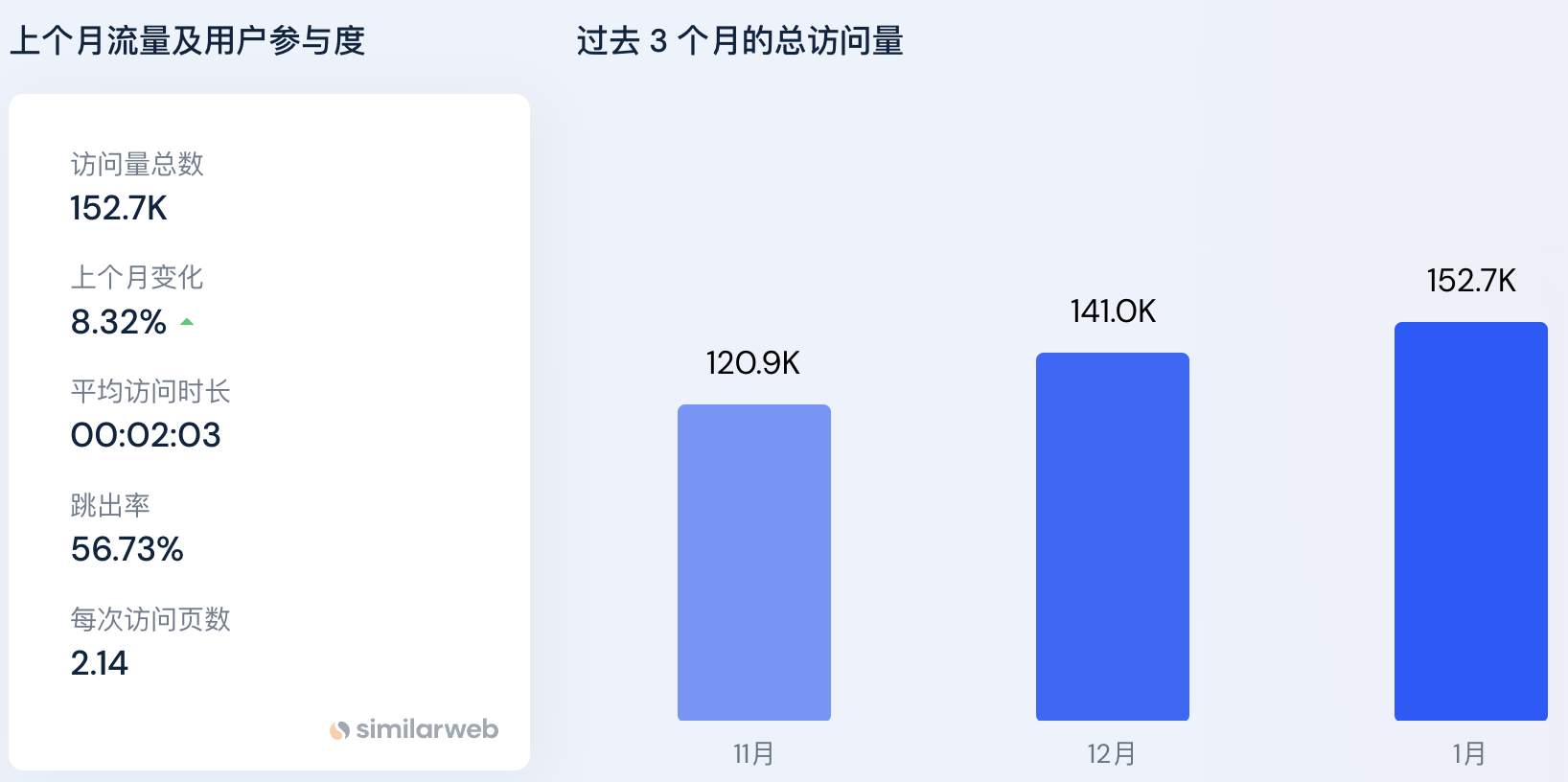
Illuvium
In January 2021, Kieran Warwick and Aaron Warwick, brothers of Synthetix co-founder Kain Warwick, launched the blockchain game Illuvium. Illuvium is an immersive open world RPG AAA game built on ImmutableX, an Ethereum layer 2 solution.
Players start the game by customizing their character and choosing an accompanying drone as a follower. Players then set out to explore the game's open world, collecting and battling the Illuvials they encounter. Defeated Illuvials can be captured in shards and minted into NFTs. There are five key game mechanics or modes that each player can engage in while playing the game: Adventure Mode, Mining and Harvesting, Team Building, Fusion System, Battle Arena. In these five modes players can capture Illuvials, earn higher tier Illuvials, and win ETH tokens.
secondary title
Closed beta gameplay
In March 2022, Illuvium launched the private beta version of the auto chess battle game Arena, and in December 2022 began to deploy the open world treasure hunting game Overworld. Users can obtain qualifications for the internal test of Arena and Overworld by registering for the internal test, reaching level 5 on the official Discord channel, and promoting on Twitter. The Alpha 0 test of the land management mining game "Illuvium: Zero" will start on January 6, 2023, and the Alpha 1 test will be launched on February 21 (official information has been delayed). The beta of Illuvium: Zero is open to all its landowners and the game is live on Android, Windows and MAC.
Currently Arena and Overworld are suspended, only Zero is open. The AlphaI beta of lluvium Zero is the first time Illuvium landholders will experience land functionality in the game, and it is an opportunity for Illuvium to test, balance, and tweak the game at scale. The income economy will not be live during the alpha version of Illuvium Zero. Players can keep blueprints acquired in Alpha, and Illuvium Land will only start generating revenue when Illuvium Zero launches alongside the Illuvium Open Beta.
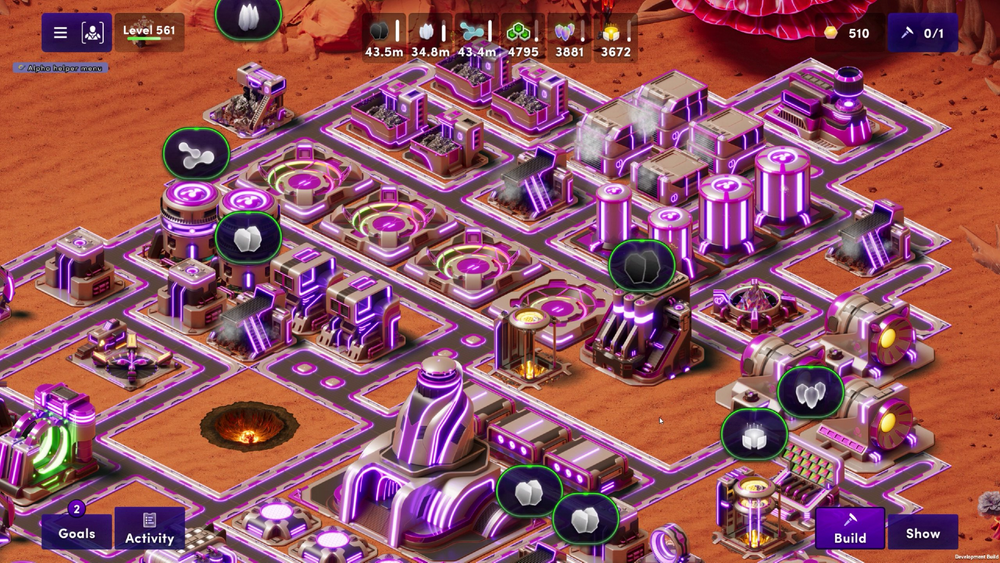
During the test period, players can play Illuvium Zero on the free T 0 land (not available during the Alpha test), or participate in the game for profit after purchasing T 1-5 land. Players use Fuel as currency in all games in the Illuvium ecology, and it is interlinked in Zero, Overworld, and Arena economic ecology.
There are three types of Fuel: Crypton, Hyperion, and Solon, which are used for various purposes in the Illuvium ecosystem. Specifically, Hyperion is used to heal shards and capture Illuvials, Solon is used to craft weapons, armor, and other upgrades, and Crypton is used to travel to different regions. Additionally, Fuel can also be used to build and upgrade advanced structures in Illuvium Zero.
While the relative value of Fuels fluctuates over time due to market factors, all Fuel Sites in the land of the Illuvium are themselves equally rare. FUEL only exists as an in-game currency and cannot be transferred to another wallet or Land Plot at this stage. The Balancer pool will be launched later, and users can exchange it for ETH on IlluviDex.
Megacities in Illuvium allow combining adjacent tiles that form 2 x 2 or 3 x 3 squares into one larger tile. The expected benefits of Megacities are: the ability to share landmark bonuses between plots, the ability to share resources between plots without transferring costs (whether in time or resources), the ability to share support buildings such as engineering labs to increase usability space. Megacities are not currently available in the Illuvium game, and the specific launch time will be announced by the official.
Illuvium also launched an advanced currency, Credits, which can be used to perform special operations to improve efficiency. Can be used specifically for event acceleration (e.g. construction and factory demolition), for purchasing additional builder slots (not available during Alpha testing). Players can earn Credits in Illuvium Zero by removing plants or completing objectives in-game, as well as in-game purchases. But during Alpha, players cannot buy credits.
According to official information, Illuvium will launch the Illuvium: Beyond game at 6 o'clock on March 8, at which time players can compete to collect Illuvtar NFTs based on Illuvium's game characters. Illuvtar is a customizable collection of NFTs featuring illustrations of Illuvials with various accessories, backgrounds, and emoticons. Illuvitar is divided into a base layer and a base, the Illuvitar base layer is a hand-painted artwork designed for digital self-expression, and the Illuvitar base can be personalized with thousands of different accessory combinations, each containing varying degrees of rarity . This rarity plays directly into the collection game Illuvium Album, earning leaderboard ranks by completing collections of hundreds of unique property links and populating albums.
To ensure that all users have the opportunity to collect the rarest items, Illuvitars will be sold in two types of packs, the Illuvitar D 1 SK and the Mega D 1 SK. Illuvitar D 1 SK includes 1 bonus level Illuvitar, 1 random Illuvitar, 3 accessories, Mega D 1 SK includes 1 rare, 1 random Illuvitar, 3 accessories. Users can mint an unlimited number of Illuvitars during the sale window. Once the sale ends, these Illuvitars will never be minted again.
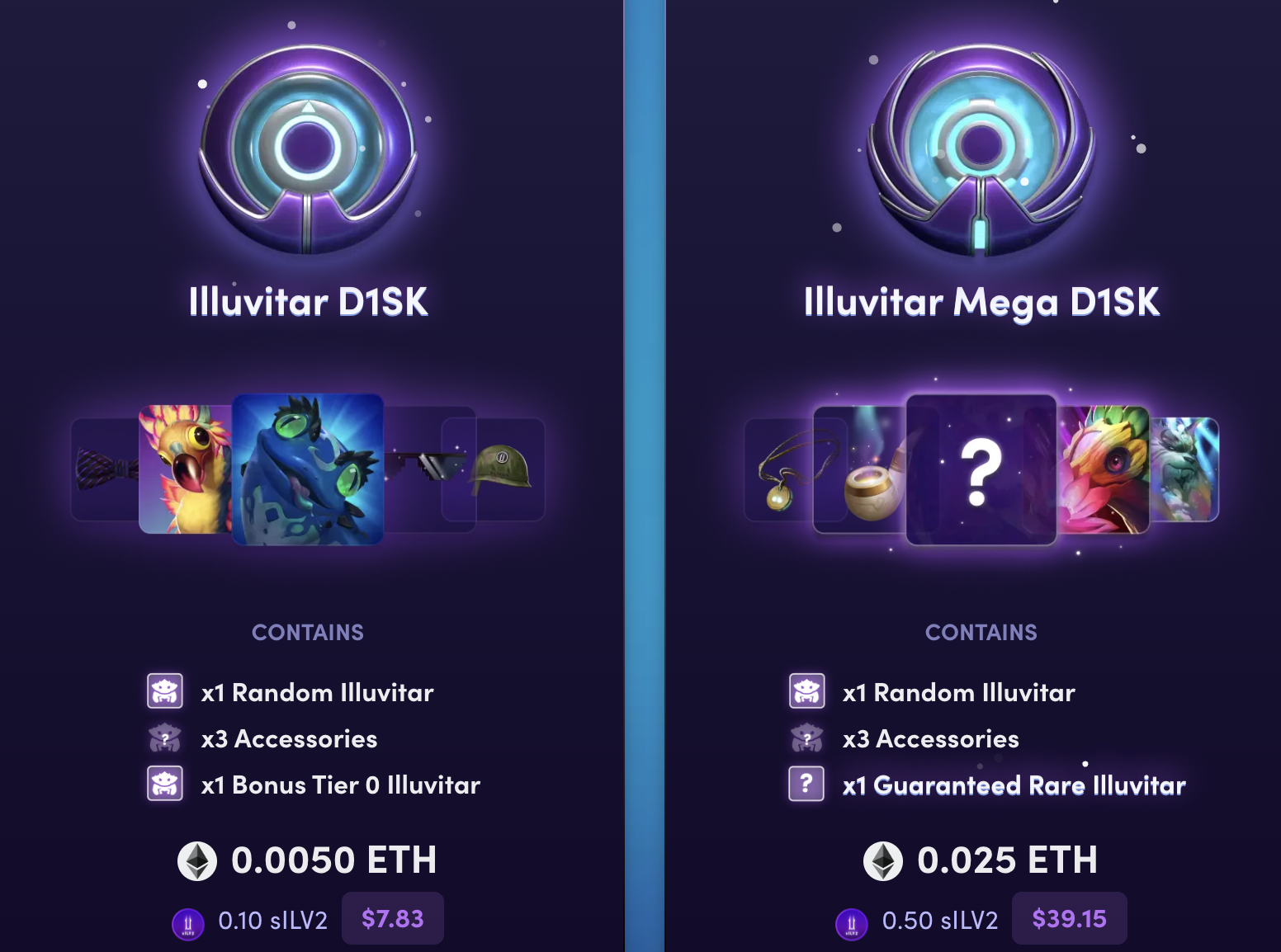
asset market value
secondary title
Beta users
According to Illuvium's internal beta rules, the internal beta application channels for Arena and Overworld versions are more flexible, and community players have the opportunity to participate. The alpha version of Zero is only available to landholders, with a limit of 20,000 users eligible to participate in the test.
According to data from similarweb, a third-party website query tool, Illuvium’s official website has received about 500,000 visits in the past three months, with a slight drop in visits in January, and the user evaluation visit time is 6 minutes. Its visiting areas are mainly the United States and France.
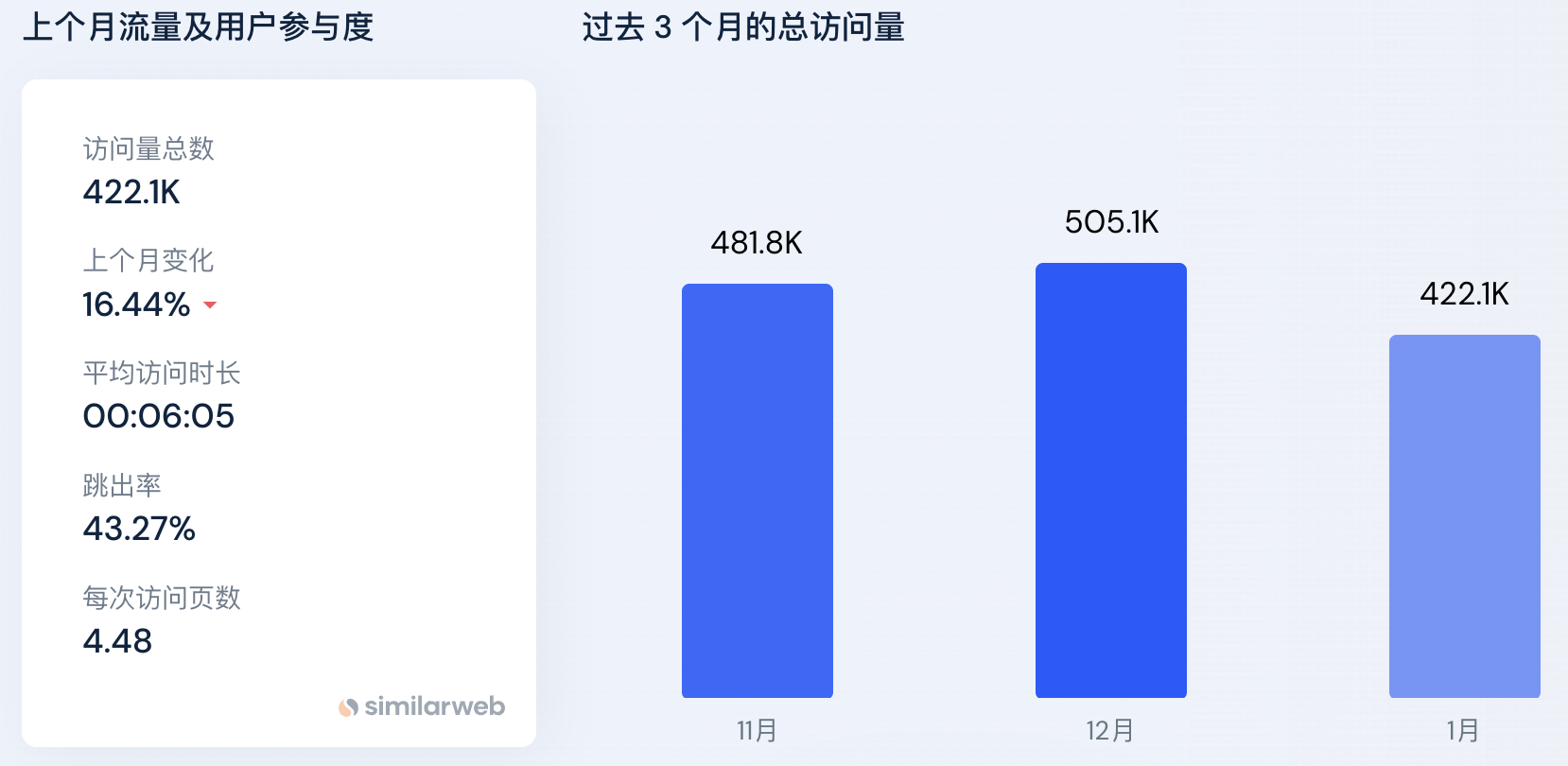
Parallel
secondary title
Closed beta gameplay
Parallel will officially open the application entrance for early access on December 6, 2022, and the closed Alpha test will start on February 28, 2023, and will be conducted in 3 times. Each session will last approximately 1 week. After the 3rd closed beta, the last group test will be held on the weekend of the fourth week. Closed Alpha testing will end on March 26th. According to official information, during the entire Alpha test period, members participating in the test are expected to receive airdrops of PRIME tokens. This reward may be issued after the closed alpha test is completed.
According to the Parallel white paper information, the game has a variety of NFTs, all of which are distributed through auctions or sales. According to incomplete statistics from PANews based on official dynamics, Parallel obtained more than 22,000 ETH by selling NFT assets to the community, which is equivalent to 34.77 million U.S. dollars.
The Parallel Alpha series has a total of 1228 types of cards and a total of 5.8 million cards. The Parallel Auxiliary Items series has a total of 11 types of cards, with a total of 9834 cards. Both sets of cards include decorations Special Edition, Perfect Loop, Prime, Assets, and more that can be used to earn even more PRIME Tokens. and 5 different Parallel characters based on mythological stories: Earthen, Marcolian, Augencore, Kathari and Shroud,
Players need to collect 40 cards to form a deck during the game. The game modes are divided into 1 V1 mode, 3 V3 team mode, and draft mode. Each player has a total health, and the win condition is to bring the other player's health to 0. As of now, the player's initial health is 30.
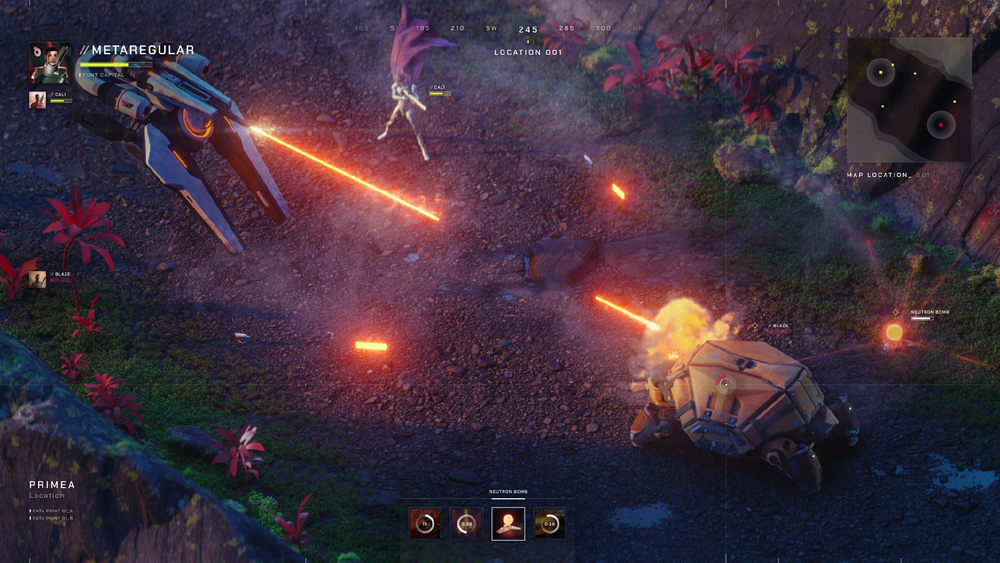
secondary title
asset market value
The economic model disclosed in Parallel’s recent official documents is inconsistent with the economic model in the white paper, and the latest official document data shall prevail here. According to this document, the total supply of PRIME tokens is 111, 111, 111.111 tokens. Among them, the Gameplay pool allocates 30% to support all games developed within the Echelon ecosystem. Investors allocated 16.24%, the founding team allocated 15.064%, the Caching pool allocated 14.1%, the Echelon Foundation allocated 10.996%, Prime Event allocated 9%, and Parallel reserves 4.6%.
The tokens of investors and the founding team are unlocked linearly in a 24-month cycle, starting from July 18, 2023 for investors and September 30 for the founding team. Parallel will begin releasing PRIME tokens on March 1, 2023, with a circulating supply of 20.2 million at that time. According to the information on the echelon website, the current total number of PRIME tokens received is 15.64 million, and the number of unclaimed tokens is 4.49 million.
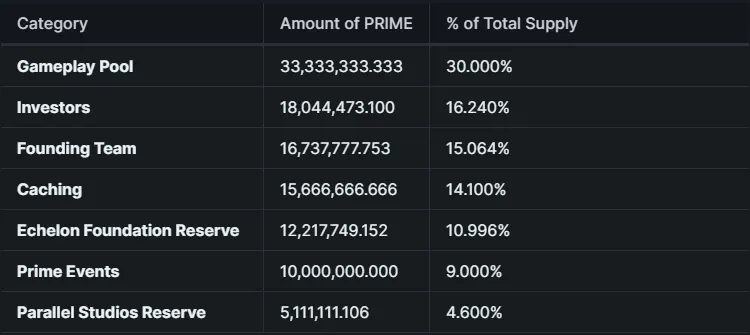
secondary title
Beta users
Parallel distributes test permissions to the community in batches by opening applications for test quotas to the community. Users who have not applied after the test version is launched will no longer be able to obtain test opportunities through free channels. Users who purchased an Alpha Access Pass will have access during all 3 waves of testing.
According to data from similarweb, a third-party website query tool, the number of visits to Parallel’s official website surged in January, more than four times the number of visits from the previous month. Distributed in the United States and Canada.
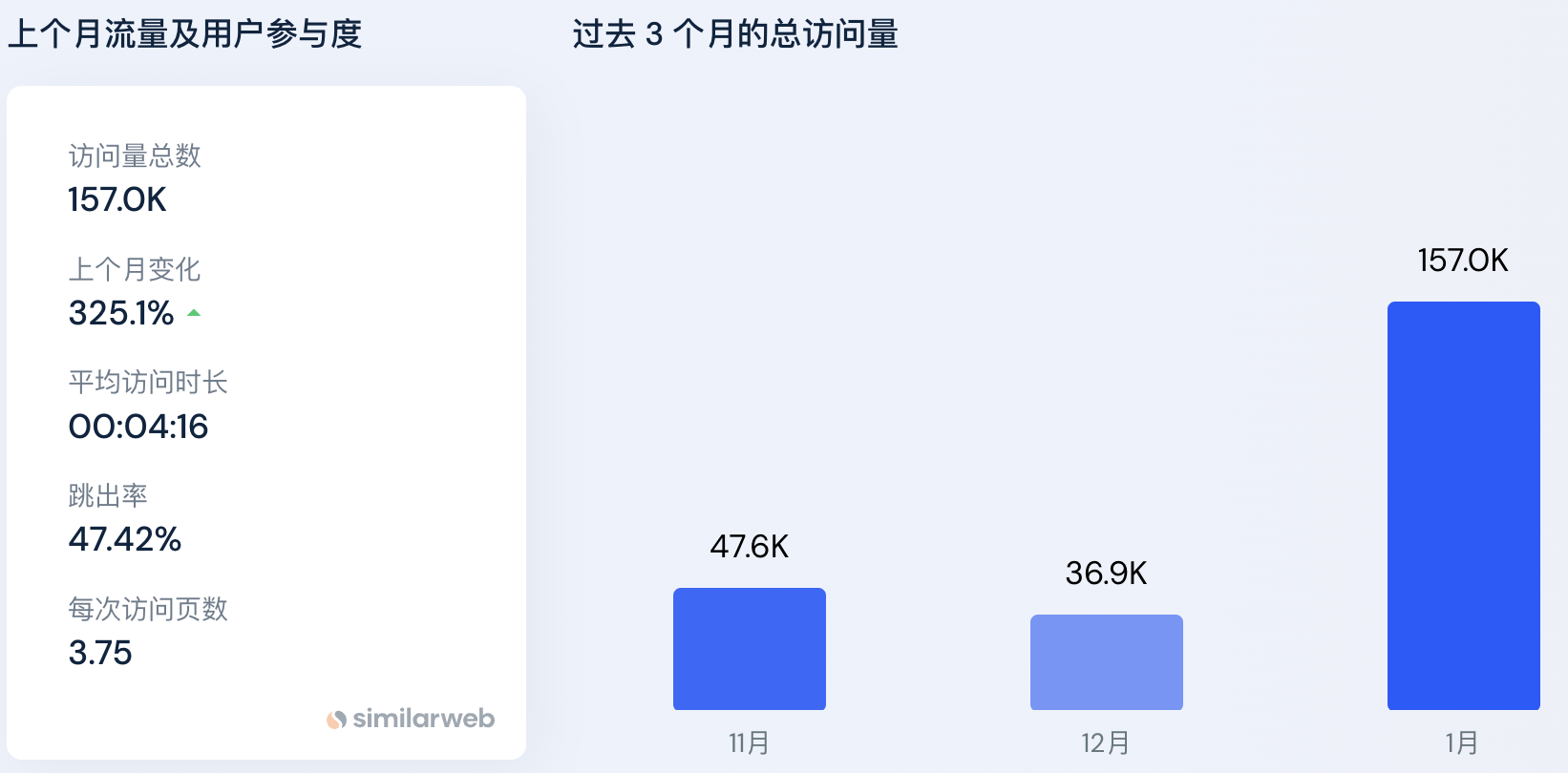
Summarize
From the perspective of the team lineup, the core teams of the above three games all have experience in the development, design and operation of successful and well-known games. The scale of financing is also considerable, and at the same time, a lot of income is obtained through the sale of in-game assets and royalties. Among them, Bigtime obtained more than 100 million US dollars through financing and selling NFT assets, Illuvium obtained 115 million US dollars through financing, selling tokens and NFT assets, and Parallel obtained 96 million US dollars through financing and selling NFT assets.
In the three games, Bigtime’s tokens are only distributed through the way players play the game, while the other two games are distributed through teams, fundraising, and in-game channels. All three made profits by selling NFT assets, among which Bigtime made the most profits. Both Bigtime and Illuvium have a large amount of land assets to be distributed. The difference is that Bigtime is dropped for free through users playing games, while Illuvium is sold through sales. The market value of Illuvium is more than twice that of Parallel, and Bigtime’s tokens have not yet been listed on the secondary market.
From the perspective of user entry threshold, Bigtime supports users to purchase assets and enter the game through traditional methods, while Illuvium and Parallel require users to use blockchain wallets throughout the process, which raises the user entry threshold. From the perspective of route planning, Bigtime specializes in games, and the other two start from games and move towards game platforms.
As mentioned above, 2022 is a bear market cycle, but the scale of game financing is still high, and many large-scale production types of games have been tested and launched one after another, and the game sector may already be ready to go.